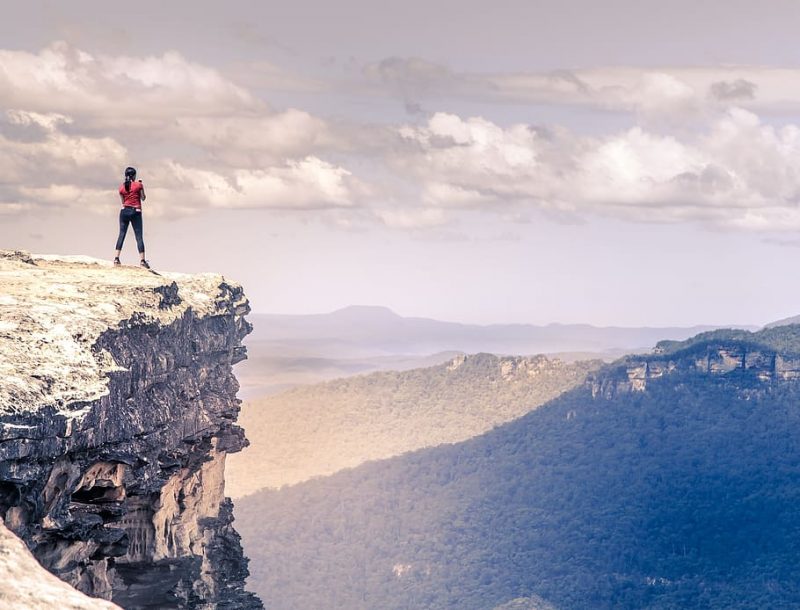There it was, at last.
After months of chipping away at articles, scaling pages upon pages of reading, and summiting the art of blogging, I’d finally made it to Finals Week, marking not only a culmination of learned skills and knowledge, but also what would be my final fall semester at Concordia College. Getting nearer to the top of this liberal educational mountain, things got harsher and more stressful – battling 10-page papers, running through my medical school paperwork, finalizing final presentations, and of course strenuously studying for the hardest tests of the semester. Through it all, I found myself asking. What was the point of all this? Why am I expending my effort on all this work? Will medical school be 10x worse? But after making it through the storm and reaching the peak, it was clear to see beyond the paper-and-pencil work and understand why the view was worth the fight – looking back at everything I’d done to get there, everything I’ve learned, and seeing where all that hard work has gone. On that note, the stopping point of this hike also marks the end of my time in Neurochemistry. But truly, there’s no better class to reflect on this semester’s educational journey than this unique experience of a course.
If you’re familiar with Concordia’s education at all, you’ll know that the Cobbers are keen on their acronyms. BREW. PEAK. They might be silly, cheesy, and fun terms to throw around, but why does the college keep emphasizing their importance, and what in the world do they have to do with Neurochemistry? To begin, BREWing means Becoming Responsibly Engaged in the World. The ultimate goal of Concordia’s liberal education is to prepare us not only for graduation, but for graduation as adults ready to make meaningful impacts in the community around us, wherever that community may be. The task of turning a bunch of fresh-out-of-high school students into critically thinking and responsible adults in 4 or less years seems like a daunting task, but that’s why the college instilled 5 main goals for their liberal learning curriculum:
- Instill a love for learning
- Develop foundational skills and transferable intellectual capacities
- Develop an understanding of disciplinary, interdisciplinary and intercultural perspectives and their connections
- Cultivate an examined cultural, ethical, physical and spiritual self-understanding
- Encourage responsible participation in the world
I won’t lie – at a first glance, a 400 level science course with a name like ‘Neurochemistry’ seemed like anything but a course that would accomplish all the goals above. I didn’t know what to expect when I sat down with the syllabus the first day of class. From my former experiences in neuroscience and chemistry (granted both subjects I do enjoy studying), I could only infer that the course was going to involve lots of memorization, technical writing, and, well, learning pure science. But little did I know I was in for one the most non-classroom-like classes I’d be taking in college, and it certainly has fulfilled many of these goals for me.
What and How Have I Learned?
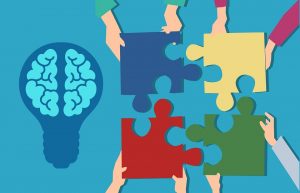
At the core, neurochemistry is a science, so there was still some typical “memorize and copy” learning involved – knowing what RTKs are, what kind of GPCR does what, and what second messengers do for your brain. But the shocking thing is, like many of Concordia’s other courses, this kind of rote memorization was kept to a minimum. Sure, we read papers and wrote pieces each week, and we did have tests in the classroom. But the difference came in what we did with knowledge from the papers, the kinds of pieces we wrote, and how we had to express our ideas during tests. Above all, I think, the in-class portion of this course has taught me to collaborate, think critically, learn creatively, and express knowledge and ideas uniquely. When we read the week’s paper, we were not expected to come with every detail memorized, every graph copied, and enzyme listed. Rather, we’d gather together as a class and compile each student’s key takeaways, ultimately trying to make something out of it. We’d think critically about how each piece fit together, and through this collaboration our class would get an actual understanding of the science behind the paper. Furthermore, each of us got the chance to express what we learned on a class wiki page, and we’d also get to do so creatively and artfully (I mean seriously, check out some of our class “artsracts”) by writing our very own Cobbers on the Brain blog posts.
One thing this class has definitely taught me is the capacity to learn from others; to always have a questioning and curious attitude. For the rest of the week, our class would hold one-on-one (speed-date style) discussions about the topic, and each Friday we’d get into two big groups to discuss quite literally anything we wanted to (no, not limited to the scientific parts) about it. These included real issues regarding our topic and the world outside Concordia, society, social problems, the community, and the world as a whole. Each of us had the chance to develop our listening skills by hearing our fellow classmates voice their ideas and thoughts, as well as form our own opinions about such broad subjects. At the end of the week, we’d put our words on a page in blog format, and I definitely enjoyed seeing how each of my classmates expressed their thoughts so uniquely, with different voices and writing styles! This is not to mention the interdisciplinary perspectives and various worldly experiences our BREWing pot (couldn’t help it) of students brought to the table – our class consisted of psychology, chemistry, neuroscience, and students of all different kinds of majors and paths.
As for busy work and tests? Pfft. Never once did we have a “rehearse and regurgitate” style paper or exam. Rather, the “exams” more like fun puzzles to complete and discuss in class from what we’d learned over the course of several discussions – putting together a few pieces of given information by making our very own hypotheses, and ultimately expressing the critical thinking we had developed. It made learning fun, and it made me love what I learned.
What Kind of Skills Have I Learned – How Will They Help me in the Future?
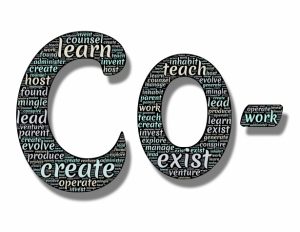
As I head off to medical school next year, there’s the obvious benefits. More knowledge = easier time with some of those dreaded Year One courses. Critical thinking and analysis skills? In the bank. Alas, I could talk about the information, critical thinking, and creative leaning I got from Neurochemistry for hours. But perhaps one of the most unique features of this class was how it combined community service and the hard sciences into one in-and-out-of-class experience, thus labelling it as one of Concordia’s PEAK courses.
The other key component of Neurochemistry was what Cobberville calls a Pivotal Experience in Applied Learning, aptly known as a PEAK. As part of our class, we formed a small group and collaborated with students totally outside most of our disciplines – Social Work students (from all the way across the Bell Tower, in good Ol’ Main) – to create a community service project. Together we had the opportunity to do something, to BREW. The communication and collaboration required to get the project across was immense, and the process was fascinating. In summary, our group aimed to focus on Mental Health in the area. We had to conduct a needs assessment, determine a target population, do something, and evaluate its success. The community and collaboration skills I learned from my other experiences at Concordia definitely helped me on this leg of the trail. Ultimately, we uncovered a massive need (the prevalence of anxiety and depression in young and college-age adults) and were able to raise awareness, help break the stigma surrounding, and bring attention to resources for and around mental health problems to one of Concordia’s most vulnerable populations – first year students.

That’s not to say the process went smoothly. The hike up this part of the mountain had its own obstacles – needs-assessment partners who didn’t send replies, schools who rejected our project, seemingly countless changes to our original plan, and first year students who didn’t know much about the physiology of mental health. But it’s this whole experience that allowed us to develop our listening and collaboration, work on setting new goals and objectives, and ultimately be adaptable and plastic – just like neuronal synapses – to break unexpected boulders in the way. Like many things in life, communication was key. Not only did we learn to communicate with major community organizations and handle rejection from some, but we also learned to put our knowledge into a format that would be appealing, memorable, and understandable to first-years. No doubt, this part of the journey was beautiful, difficult, but also definitely pivotal.
As for me, will this help my journey into the realm of medical school, and eventually the hospital? The short answer is yes – the same skills I mentioned above are largely parallel to those a doctor needs when working with other doctors, staff, and perhaps most importantly, their patient population.
What Does Liberal Arts Education Mean to Me, and Have I Improved Myself?
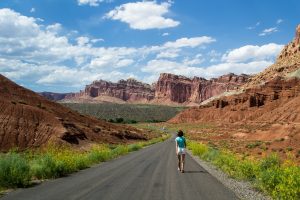
Right now is the best time to create your tomorrow – Ken Poirot
But did I, after my tiresome semester’s trek up the liberal education summit this semester, BREW? Did I PEAK? Even outside of Neurochemistry and speaking to my 3 years of college here, was all that hustle and bustle during finals week, all those papers, and the entire academic hike worth it? That’s a most definite yes to all those questions. Concordia’s education has definitely prepared me for this year’s culmination in learning, and Neurochemistry was an amazing way to combine all I had learned beforehand. Sure, it was hard, and at times tedious, painstaking work to get to this point. But the invaluable skills and lifelong knowledge I obtained throughout the process will stick with me beyond graduation, as I go out there and become a responsible adult, ready to engage in the affairs of the world.
And that, I believe, is what liberal arts education should do. It’s not just simply memorization and straightforward, linear learning. Even if it does include 10 page papers and difficult exams, or creative community collaborations like in Neurochemistry, it comes down to putting in the extra effort and applying outside knowledge to make sure you love what you learn from them, to develop your foundational skills, and to cultivate perspective, self-understanding, and responsibility. Afterall, without the skills I’ve learned climbing Concordia’s difficult liberal education mountain, I probably would not be volunteering in the community, setting scary big educational goals, and making time for other activities as I go on to complete my final semester of college. Who knows, I might not have reached my goal of getting into medical school either.
So reaching the Top? It’s really only reaching the Start. There’s a whole mountain range to explore out there, and with medical school starting soon for me, the journey is only beginning. But whatever your discipline, your major, or your specialization, your own journey up the education mountain won’t (and should never) stop. And the foundational skills learned from a liberal arts education, and through experiences such as those in Neurochemistry, will serve as the tent to fall into when the going gets seemingly too rough. Oh, what’s that? I see another mountain to climb nearby! So without further aBREW…
Let’s PEAK!
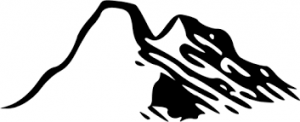
Emily Hao, 2020
